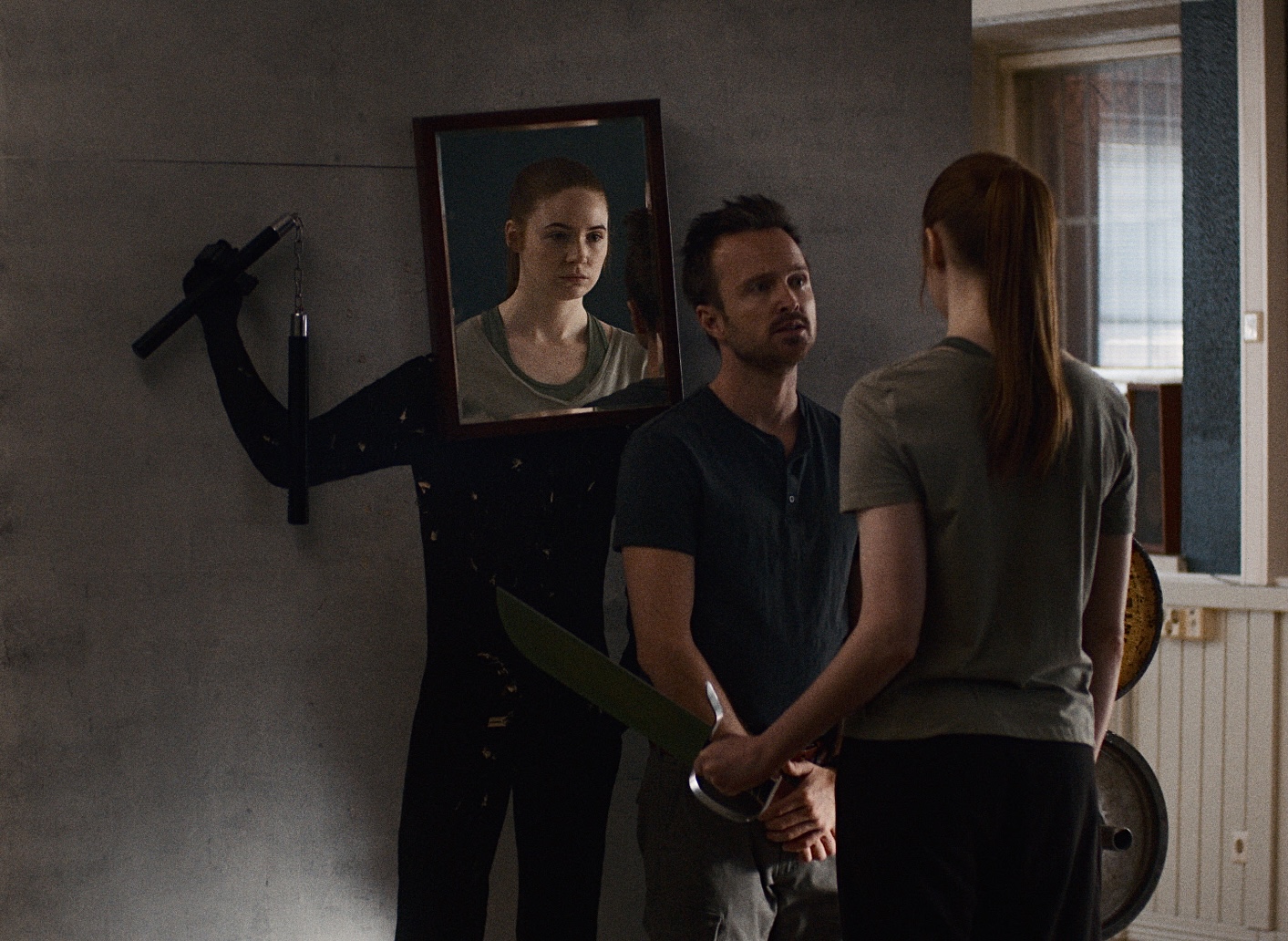Dual would make a hilarious companion piece with Swan Song. Karen Gillan’s human would have no problem beating the sh*t out of Mahershala Ali’s clone, though she might realize it too late. For the cynic in us all, Dual throws the middle finger at all the possibilities cloning would offer society, instead giving us a strange dark character piece Stearns has become wickedly good at.
Gillan plays Sarah, a woman who’s best days are behind her. She’s got a boyfriend, Peter (Beulah Koale), but he keeps finding excuses to keep away from her. Sarah’s mom is the opposite: irritatingly intrusive to the point Sarah puts her right to voicemail. Sarah’s days are survived by wine and poolside gang bang pornography, then sleep and repeat. On a visit to the doctor, Sarah gets diagnosed with a disease that with 98% certainty will 100% kill her. To save Peter/her mom from heartbreak, she clones herself, and teaches clone Sarah what her life is like before she passes away with 100% certainty.
As you might guess, that 2% margin of 100% error becomes fulfilled. Enter that Stearns wicked cruel mind. You’d think Sarah surviving might be a blessing right? Well not when your clone is basically a better version of you, and happens to be more compatible with mom/Peter, a comedic gift that keeps on giving. Plus, Sarah quickly learns society is not in her favor either, financially and dutifully obliged to help her clone steal her life. This sends the fully in nihilistic stasis real Sarah on a revenge mission, using the law to set up the titular duel with her clone. Those deadpan essentially pro-murder sessions with her teacher (Aaron Paul) are downright hysterical, the best use of Stearn’s deadpan dialogue as Sarah and her teacher study more and more abhorrent things.
But then Riley Stearns’s screenplay goes for even deeper irony. This revenge mission gives real Sarah purpose again, finding a zest for living, while clone Sarah learns how real Sarah became so nihilistic in the first place. Just when you think the world can’t get more cruel and cynical, Stearn’s screenplay goes crueller and more cynical with each passing scene, using the well of both Sarahs character flaws to find lesser and lesser optimal solutions for their predicament. Karen Gillian does a pretty decent job creating two different characters that basically look, talk, and sound exactly alike. I wish Stearns let at least one of the Gillan’s slowly unravel over the course of the film, because both of them get pushed to their breaking points. He does set up a couple decent twists if you’re paying attention, with Gillian doing a great job of hiding what is actually happening.
Will we be remembered when we die? Will those who love us miss us? Dual does NOT think you should dwell on these questions, because you’re probably not going to like the real answers. In a way, Dual is a loving ode to nihilism, because at least nothing bad can happen if you don’t care about anything. And if that’s not your bag, it’s also an ode to hip hop dance classes and what they can do for your emotional state and metabolic output, as Sarah might say.

